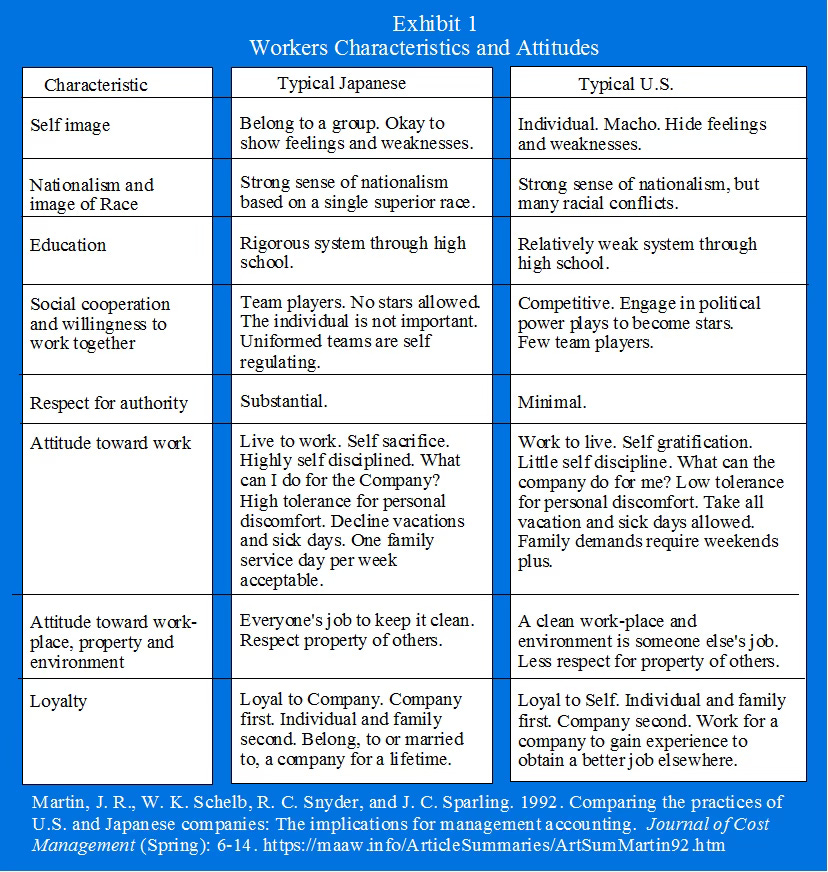Japanese Accounting for Value Investors by Eugene Alexeev
Leveraging Japan’s accounting for long-term growth
Hey there, my friend!
Hope your week’s off to a great start - maybe you’ve already had that first cup of coffee? If not, don’t worry, I’ll wait... Alright, let’s dive in!
Today, we’re gonna geek out on something that’s more than just an academic curiosity - Japanese Management Accounting.
Sounds heavy, but trust me, it’s packed with some solid gold for us value investors.
I know, you’re thinking, “Wait, what does accounting have to do with my investment strategy?” Well, it turns out, a lot.
Japanese management accounting isn't your typical number-crunching snoozefest.
Instead, it’s all about long-term goals, smart integration with production, and good old teamwork (something that sounds very Buffett-esque, right?).
Let’s get into it.
Focus on Long-term Goals
Forget short-term metrics that can mess with your head.
Japanese management accounting is like Buffett’s mantra - focus on the long game.
These folks look past quarterly reports and keep their eye on the bigger picture, just like us value investors.
It’s all about continuous improvement and not getting distracted by the daily noise (Buffett would be proud).
Integration with Production Systems
You’ve probably heard of Just-In-Time (JIT) production or Total Quality Control (TQC).
These systems aren't just buzzwords - they’re tightly woven into how Japanese companies manage costs and efficiency.
And if you’re thinking, “But I don’t run a factory,” don’t worry.
The principles apply to any business trying to scale without unnecessary waste.
Cultural Influence on Accounting
Here’s where it gets even more interesting.
Japan’s collectivist culture (think teamwork on steroids) plays a big role in their management accounting.
It’s less about individual performance and more about shared responsibility.
Kinda makes you rethink the way we approach teamwork in business, doesn’t it?
Now, I don’t want to get too academic here, but if you’re really curious, there’s a great read on this topic from HarvardBusiness Review that dives deeper into how these accounting practices give Japanese companies an edge.
Go ahead and check it out if you’ve got the time.
A Quick Detour into Hitachi’s Playbook
Here’s a fun nugget for you.
Hitachi - you know, the electronics giant - has a unique take on how to allocate overhead costs.
Unlike their American counterparts, who love using direct labor hours (which sometimes leads to questionable decision-making), Hitachi focuses on cutting those hours to improve overall costs.
Sounds simple, right?
But the real trick is how they blend automation and standard parts to make their products more cost-effective.
For more on how this plays out, take a look at this summary from MAAW.
It’s a quick read, and trust me, it’ll give you some fresh ideas.
Japanese vs. American Accounting: The Showdown
What’s fascinating is how Japanese management accounting isn’t just about the numbers - it’s about aligning accounting practices with long-term corporate strategy.
You see, while American companies might zero in on short-term profits, the Japanese are obsessed with market shareand product quality.
That means their accounting systems are more than just about cost-cutting - they’re about influencing employees to continuously innovate.
Kinda makes you wonder if we’re doing it wrong, huh?
If this piqued your curiosity, you might want to check out this detailed piece.
It really lays out how Japanese companies have been able to stay competitive by using these principles.
What’s the Takeaway for Investors?
So, how does all this tie back into value investing?
Well, if there’s one thing Buffett, Munger, and even Pabrai keep preaching, it’s this: look at the long-term value of a company - not the shiny stuff happening today.
Japanese management accounting does exactly that.
It helps companies focus on innovation, efficiency, and long-term value.
And as a savvy investor, that’s exactly what you should be paying attention to when deciding where to put your capital.
Before I sign off, here’s a thought to chew on: whether you’re investing in companies like Apple, which embraces trends but sticks to its core, or smaller tech firms that need to adapt fast to survive, always keep your eye on the fundamentals.
Japanese management accounting teaches us that it’s the underlying processes and long-term vision that count.
That’s it for today! Hope this gave you a little something extra to think about as you navigate your week. As always, keep learning, stay curious, and don’t forget - it’s a marathon, not a sprint.
Catch you next time!
•All information in the article is sharing my own experience and is not a financial advice. It is only for educational and entertaining purposes.







